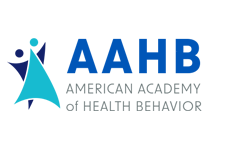Abstract
There is a dearth of research on the determinants of food insecurity among adults who experience homelessness. According to cumulative risk theory, it is the accumulation of risk factors that places individuals in jeopardy for negative health consequences. Building on the cumulative risk theory, domain specific indices were created to examine the relationship between four cumulative risk factors and food insecurity among adults who experience homelessness. Adult participants were recruited from six area shelters in Oklahoma City (N = 565) during July – August of 2016. Participants who affirmatively responded to two to six items of the six-item USDA Food Security Scale-Short form were categorized as food insecure. Four indices of cumulative risk were created based on affirmative survey responses: poor health & risky health behaviors index, personal and sexual victimization index, household disruption, and financial strain. Covariate-adjusted logistic regression models predicted the odds of adults experiencing food insecurity. Seventy-eight percent of the sample experienced food insecurity. Higher scores for the poor health and risky health behaviors index predicted higher odds of experiencing food insecurity (OR = 1.80, CI: 1.51 – 2.14). Higher scores for the personal and sexual victimization index also predicted higher odds of experiencing food insecurity (OR = 1.57, CI: 1.20 – 2.04). To facilitate food security among adults experiencing homelessness, shelters and community-based programs need to consider homelessness and food insecurity to be multi-faceted public health problems that are interrelated.
Creative Commons License

This work is licensed under a Creative Commons Attribution-Noncommercial 4.0 License
Recommended Citation
Hernandez, Daphne C.; Daundasekara, Sajeevika S.; Arlinghaus, Katherine R.; Tobar, Nubia; Reitzel, Lorraine R.; Kendzor, Darla E.; and Businelle, Michael S.
(2019)
"Cumulative Risk Factors Associated with Food Insecurity among Adults who Experience Homelessness,"
Health Behavior Research:
Vol. 2:
No.
1.
https://doi.org/10.4148/2572-1836.1033




